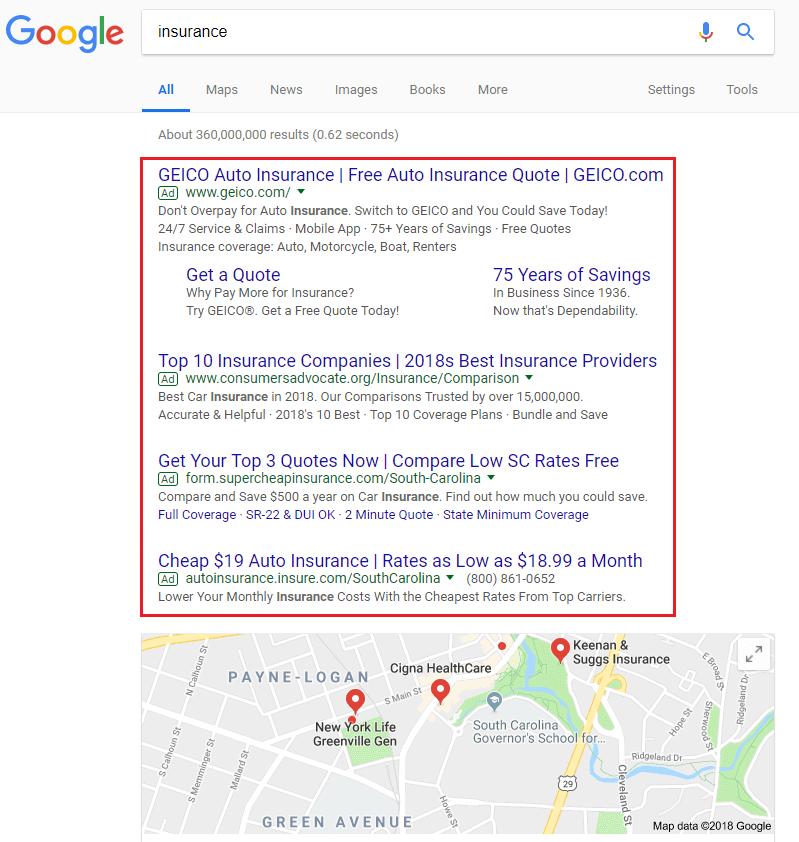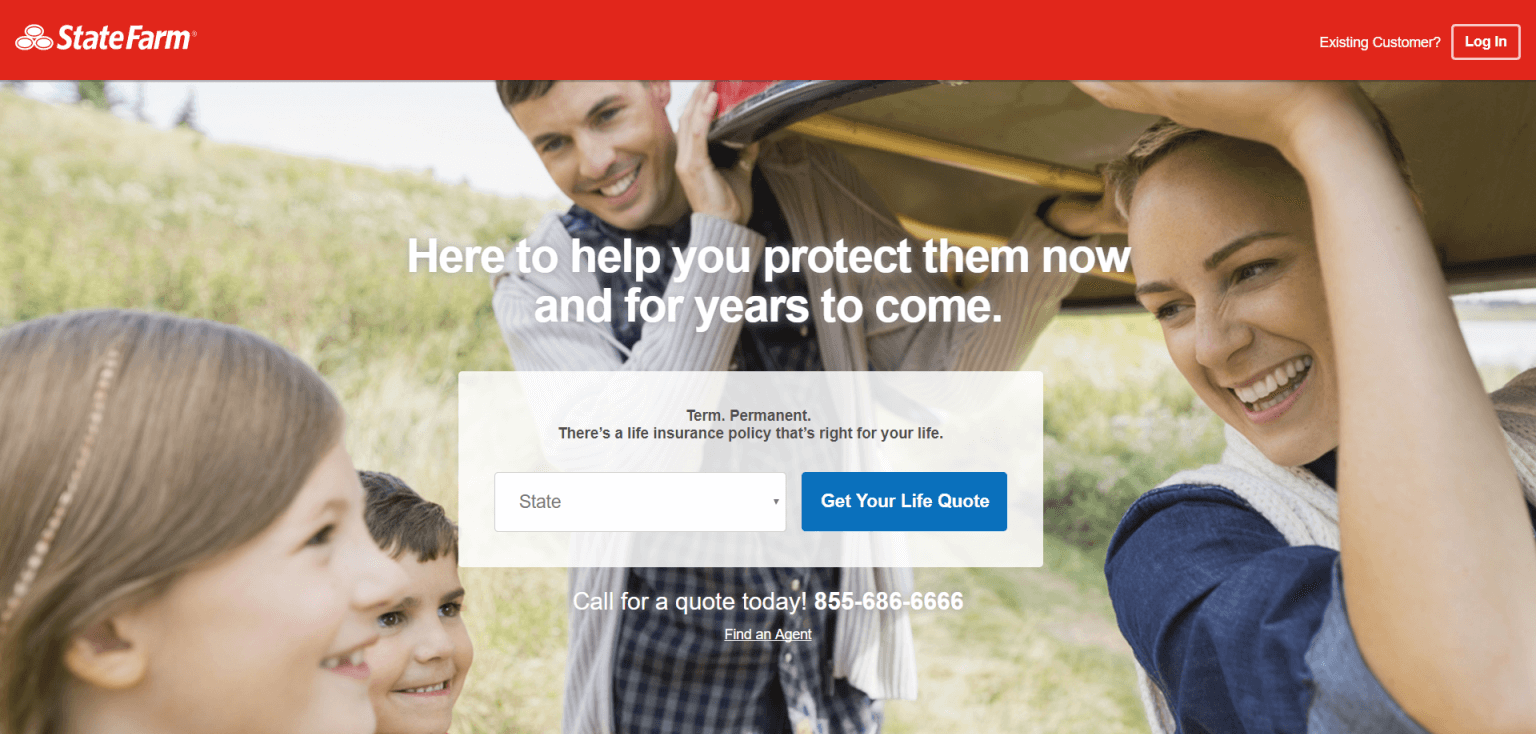If you aren’t sure what Google Ads is or how it works, start by reading this article.
There are plenty of online advertising platforms you could utilize, one very popular platform being Google Ads. Many have given Google Ads a shot, but haven’t seen great results. If you’ve sworn off Google Ads because you aren’t seeing any results, you’re not alone. A lot of marketers and business owners fail to see results from Google Ads.
If you remember, Google Ads work sort of like “magic billboards” that appear on the highway offering you exactly what you’re craving, exactly when you’re craving it. These billboards appear because businesses “bid” on which craving you’ll have (read: which words you type into Google to search for something). The company with the highest bid and most relevant product/service at the right moment will have their logo appear on the side of the road (read: at the top of the search results page).
So, flash forward: you’re placing “bids” on words you think are relevant to your potential customers, but your ads aren’t driving traffic to your website or storefront. You’re not seeing a return on your marketing investment and, with money flying out the window, it’s hard to justify the “magic billboard” approach.
Your first reaction might be that people are outbidding you and your ads are not getting seen by the people “craving” your products. The problem with this reaction, though, is that it reduces Google Ads into a simple bidding war. And while bids are important in Google Ads, they aren’t the only factor or the most important one.
The reality is that there are lots of factors that go into a successful Google Ads campaign. So before you swear off Google Ads and the “magic billboard” method for good, ask yourself these questions:
1. Are your ads compelling?
Luckily, Google provides advertising guidelines so you know what not to do in your ads. But just because you’re not permitted to use gimmicky language (*~*F-R-E-E*~*) and vague phrases (“buy products here”) doesn’t mean that your ads have to be boring.
When you’re writing your ad copy, think like your target audience. What are they craving? Better yet, take a look at your competitors’ advertisements and try to write ads that set you apart.
Whether you’re passing billboards, reading a magazine, or watching TV, if you saw two identical advertisements for two different companies, you wouldn’t be very intrigued by either of them, would you?

Google Ads at the top of Google search results
Google Ads are the same. Make sure your ads clearly articulate the value you provide and focus on using language that will curb your potential customer’s craving.
2. How relevant are your ads to users?
You might be thinking, “How could my ads not be relevant to users when I’m targeting the cravings I know they’re having?” Well, there are a few situations that could render your ads irrelevant.
The most common possibility: your keywords are too broad. This means your ads are being shown to people who don’t fit into your target audience.
Say you sell life insurance. You decide that you want your ads to show to as many people as possible so instead of narrowing your focus and bidding on specific words like “life insurance quotes” and “life insurance policy,” you decide to bid on words like “insurance” and “insurance coverage.”
In this case, your ads might be showing to more people but chances are slim that these people are looking for what you sell. You are paying for your ads to show to people who might be looking for car insurance, health insurance, or home insurance.
This leaves searchers disappointed by your website and causes them to leave your site immediately after clicking on your ad. Google takes note of this and not in a good way.If lots of users are clicking on your ad and leaving immediately or not taking action, Google will penalize you and show your ads less, even to those who actually want what you’re selling.
It’s important to be intentional about the words you choose to bid on. Remember, one of Google Ads’ most notable benefits is the ability to capture your exact audience at the exact moment they’re craving what you offer. It’s better to get specific than to cast a wide net.
3. What is your landing page like?
Landing pages are perhaps the most overlooked aspect of Google Ads. A landing page is the page that people go to after clicking on your ad. And no, your regular homepage does not count as a landing page. In fact, sending searchers to your homepage is a good way to frustrate them and complicate their experience.
Let’s say someone searches for “life insurance.” They see your ad, which offers a free life insurance quote and tells users that they can compare plans and save money, but when they click on the ad, they’re taken to your homepage. Sure, your homepage has a lot of information about who you are as a company and perhaps the different life insurance products you offer. It might even be a beautifully designed website. But the “free life insurance quote” offer you previously promised is nowhere to be found.
You need to direct searchers to a page that delivers what they are looking for and what your ad promised them they’d find.
It’s all about customer satisfaction and delivering as promised. If not, people will leave your website quickly, Google will take note, and your ad performance will suffer, losing you potential clients.

An example of a good landing page from State Farm. Searchers can immediately find what they’re looking for: a quote.
4. Are you tracking conversions?
Conversions refer to the actions that you want potential customers to take after clicking on your ad. Tracking these actions allows you to measure your ad’s effectiveness. Some examples of conversions might be to call you, send you an email, or submit a request form.
If you aren’t tracking these conversions, you won’t know how well your ad is doing its job.
Luckily, Google allows you to set up conversion tracking by simply placing a snippet of code on your website. Don’t worry! Just because we said “code” doesn’t mean this is a difficult task.
Conversion tracking is pretty simple and Google provides step-by-step directions to make sure you’re setting it up correctly.
Once you’ve set up the tracking code, your website will report which conversions are happening as a result of your ads. When someone clicks on your ad and fills out that form, calls your business, or performs whichever action you’ve identified as valuable, you’ll be able to attribute that success to your ads.
If you notice your ads aren’t getting you as many conversions as you’d like, you can look back at your landing page to make sure it’s clear you are delivering on your promise and you have clear directions for your potential customer.
5. Do you have enough data?
Since you can see immediate statistics and results from Google Ads, it’s easy to make quick judgments about the success of your ads and start making little tweaks.
Your inclination to make tweaks is natural, however, much of Google Ads is trial-and-error, and running your ads for a day isn’t enough time to determine their effectiveness.
We recommend letting your ads run for at least a month before making any significant changes to them.
During the first month of your campaign you should keep an eye on the search terms you have chosen and remove any keywords that are getting you lots of unqualified clicks, but we advise against big changes during the first month of a campaign. You need significant data to shape your strategy and after about a month, you should have enough to determine if your ads are hitting potential buyers’ cravings.
Even though Google makes its ad platform seem straightforward, it can be pretty complex. That’s not to say you can’t execute a successful Google Ads campaign on your own—you certainly could. But there’s a lot more to Google Ad success than bidding higher than your competitors. Keeping track of Google Ads on top of your usual day-to-day responsibilities can be a hassle.
Before you give up on Google Ads altogether, remember that it’s a complex, multifaceted program. Just because you haven’t seen success running a campaign on your own doesn’t mean it can’t be done. Reaching out to a certified Google Ads expert can help you shed some light on the complexities of the “magic billboard”.
Wonder what other online advertising options you have? Check out some related posts:
Start the Conversation
Interested in learning more about how we can maximize your digital advertising?


